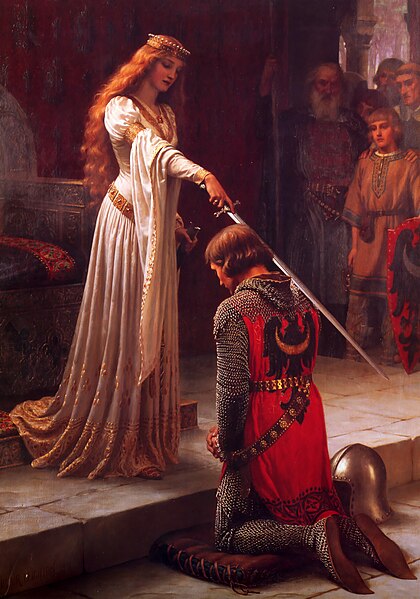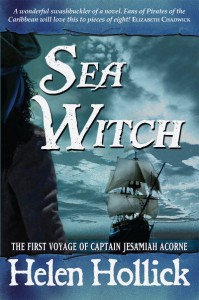
I have always been fascinated by historical settings but at the same time I adored a good fantasy book. So, in my reading, I have devoured the Lord of The Rings, the Disc World Novels and a good chunk of fantasy published in the last thirty or so years. I have also read a lot of historical series such as the Sharpe, Saxons and Longbow series by Bernard Cornwell and the Flashman novels by George Macdonald Fraser and many others. As these two twin sources of inspiration have both had such a strong influence on me, it is not surprising that I would write and publish a book – The Last Seal – where the fantastical world of demons and sorcery is blended into the historical events of the Great Fire of London in 1666. This fire was able in 4 dramatic days to destroy the medieval heart of the third largest city in the world.
I am not alone in having written historical novels where there is a fantasy element – either the blending in of elements of sword and sorcery OR the laying out of an alternate version of history. Indeed, this is a thriving and popular genre of fiction. In this post I am going to take a look at some examples of this type of literature.
We should start with a definition. What IS Historical fantasy? Briefly, it is a type of fiction where the setting is that of earth at some point in its history or is based upon our history but where often something different has happened. There are three broad approaches and sub genres:
Firstly – as in the case of my novel – magic, mythical creatures or other supernatural elements exist in our world perhaps with the majority of people unaware.
As an example of this consider Sea Witch by Helen Hollick. This is a pirate story set in the Caribbean, America and in South Africa. The setting is authentic, the description of pirates and the world in which they exist most definitely rooted in the time period. Yet there is a difference. A goddess exists beneath the ocean and the heroine is a white witch.
Another book of this type is Jonathan Strange and Mr Norrel. This is set in the year 1806 in England. The Napoleonic wars are raging in Europe. At this time magic is an academic subject only and is no longer practised. However there is a prophecy about the return of magic to England which in the end leads to a battle between two powerful magicians.
Secondly a historical fantasy novel might take place in an alternative history with clear differences from our own. Perhaps the Normans lost the battle of Hastings or the industrial revolution never took place.
One of the most famous authors of alternate history is Harry Turtledove. He is incredibly prolific in this genre. In How Few Remain a linchpin event of the American Civil War – General Lee’s orders (which in reality were captured by the Union on the eve of the Battle of Antetan) are recovered and so, as a result,  the South surprise the Union army and defeat it winning the war and becoming independent. A whole series of Great War novels follows with the Union and Confederacy taking alternate sides.

The Michael Morcock’s Hawkmoon books take an interesting approach in placing the stories in a future (maybe post apocalyptic world) where there is magic and fantasy in a world where sorcery is now science.
The third type of historical fantasy is where the story takes place in another world with recognizable parallels to real world historical periods. In some ways this describes the bulk of fantasy novels many of which are set in the medieval period. Some are clearly based on a definitive historical period whereas others are more loosely inspired by a generic idea of knights and castles etc.
Raymond Feist’s Daughter of the Empire is set in a fantasy world which is very definitely based on medieval Japan with the equivalent of Samurai and codes of honour etc.
Guy Gavriel Kay’s A Song for Arbonne is set in a fantasy world which is inspired by the south of France again in the medieval period.

I think that the appeal of Historical Fantasy is the opportunity to explore history in a different way. You can play “what if” games. What IF Richard III had found that horse at the Battle of Bosworth? What if the Spanish Armada had landed and invaded England in 1588. Historical periods also create fascinating inspiration for an author and many ideas for other stories that never did happen but are great to read about. Finally much of human fears and imagination is linked to magic, supernatural elements and the possibility of what is hiding under the bed or down that dark corridor. Bringing that into our mundane world is fascinating and appeals to many readers – witness the widespread appeal of Harry Potter.
When I was researching the Great Fire of London I began to realise that the people of London in 1666 in many cases really believed in magic and witches, plots and secrets societies, omens and portents of doom. It was only a short step then to creating a fantasy story based around a demon trapped under the city and rival parties battling it out with gunpowder and sorcery over control of the demon. If that type of story appeals to you can find out more on my website.
This article is one of a series connected with the release in August of the new paperback of The Last Seal my historical fantasy set during the Great Fire of 1666.



Related Articles
No user responded in this post